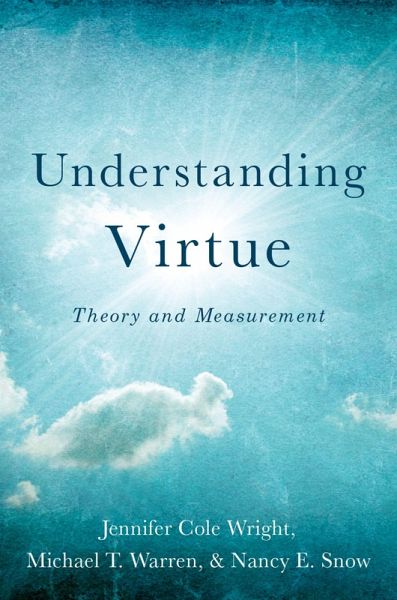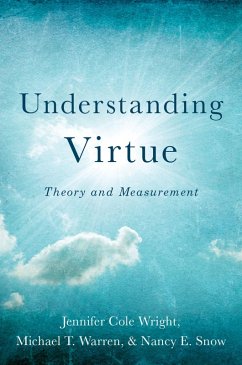
Understanding Virtue (eBook, PDF)
Theory and Measurement
Versandkostenfrei!
Sofort per Download lieferbar
32,95 €
inkl. MwSt.
Weitere Ausgaben:

PAYBACK Punkte
16 °P sammeln!
The last thirty years have seen a resurgence of interest in virtue among philosophers, psychologists, and educators. Over time, this interdisciplinary conversation has included character cultivation and education, in addition to more abstract, theoretical discussions of virtue. As is often the case when various disciplinary endeavors become entwined, this renewed interest in virtue cultivation faces an important challenge--namely, meeting the varying requirements imposed by different disciplinary standards. For virtue in particular, this means developing an account that practitioners from mult...
The last thirty years have seen a resurgence of interest in virtue among philosophers, psychologists, and educators. Over time, this interdisciplinary conversation has included character cultivation and education, in addition to more abstract, theoretical discussions of virtue. As is often the case when various disciplinary endeavors become entwined, this renewed interest in virtue cultivation faces an important challenge--namely, meeting the varying requirements imposed by different disciplinary standards. For virtue in particular, this means developing an account that practitioners from multiple disciplines find sufficiently rigorous, substantive, and useful. This volume represents a response to this interdisciplinary challenge. This co-authored book not only provides a framework for quantifying virtues, but also explores how we can understand virtue in a philosophically-informed way that is compatible with the best thinking available in personality psychology. Its objective is twofold: first, drawing on whole trait theory in psychology and Aristotelian virtue ethics, it offers accounts of virtue and character that are both philosophically sound and psychologically realistic. Second, the volume presents strategies for how virtue and character can be translated into empirically measurable variables and, thus, measured systematically, relying on the insights from the latest research in personality, social, developmental, and cognitive psychology, and psychological science more broadly. This volume presents a major contribution to the emerging science of virtue measurement and character, demonstrating just how philosophical understanding and psychological research can enrich each other.
Dieser Download kann aus rechtlichen Gründen nur mit Rechnungsadresse in A, B, BG, CY, CZ, D, DK, EW, E, FIN, F, GR, HR, H, IRL, I, LT, L, LR, M, NL, PL, P, R, S, SLO, SK ausgeliefert werden.













